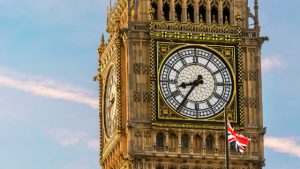
Like road-safe driverless cars and no-fault divorce, the possibility of cross-party cooperation to end the Brexit crisis has for some time seemed tantalisingly close, but has never quite materialised. This raises fascinating questions about how cross-party collaboration operates in the British context, which we are exploring in today’s blog.
At the most extreme end of the spectrum, there are Governments of national unity, which tend to arise in moments of acute crisis, the archetypal example being war and threat of foreign invasion. Obviously, there is nothing new about the need for those in power to cease squabbling and present a united front in order to stave off some external threat, whether comes in the form of human enemies or natural disasters like plagues or earth-quakes. This imperative is older than the modern British Constitution or party system, but history is littered with examples of regimes which have come to sticky and ignominious ends because they failed to act collectively in the face of a crisis.
Regrettably, when faced with two choices, either cooperating with people you dislike or letting everything going to hell in a handbasket, humans have not always chosen the former option. An early example in the modern era of mixed success was the Ministry of All Talents, a coalition Government of national unity which was set up after the death of William Pitt the Younger in 1806. Pitt had been a highly efficient workaholic Prime Minister, and left something of a vacuum. Bearing in mind that Britain was trying to fight Napoleon at the time, this was less than ideal and a coalition Government was set up. The new executive famously succeeded in abolishing slavery, before falling apart in 1807, amidst total disarray over whether to give civil liberties to Catholics.
Nevertheless, some national unity Governments have had a longer life-span. For instance, in practical terms there was effectively coalition rule from the Great Depression right until the General Election in 1945. For all of the reasons which you might expect, the focus on unity and mutual support heightened with war years, and anticipated Nazi invasion. It is interesting to note, however, that in 1945, Winston Church spectacularly lost the election, and the acclaimed war leader failed to convince people of his ability to steer the ship of State in peace-time. Needless to say, the reasons of this failure were extremely complex and are hotly debated by historians today. For present purposes though, it is sufficient to note that national unity Governments in our context are the outcome of a response to an emergency of one sort or another, and irrespective of how successful they might appear, they cannot expect great longevity once the storm has passed. Significantly, the British two party system is set up around having a Government and an Opposition (indeed, there needs to be a nominal leader of the Opposition during a national unity government), and this dichotomy is part of our system of checks and balances on the exercise of power, as well as a practical safeguard against corruption and complacency. For instance, Disraeli famously remarked “No government can long remain strong without a strong opposition.”
In any event, it would be misleading to paint a picture of parliamentarians constantly fighting like angry squirrels in a bag. In reality, many issues which the legislature examines are not “party political” and in committees especially, there is frequently positive joint working, even when it is “business as usual”, with a Government and an Opposition. Equally, some major social questions, for example the introduction of same -sex marriage, may divide opinion, but not in a way which reflects the Labour versus Conservative spilt.
Nevertheless, there are times when an ongoing crisis is so serious that formal, deliberate cross-party agreements and working together may be the only way forward. Despite the obstacles, with the current frustrating lack of progress on Brexit, this may still be the best hope for ending the saga. Cooperation would not need to take the form of national unity Government, with ministers being drawn from different political parties and a formal coalition heading the executive. But instead, some form of accord which set out how decisions on this particular issue would be made, with input from across the political spectrum, might be a productive way out of the ongoing impasse, albeit not one without its own challenges.
Related Articles
Labour wary of Tory divisions as Brexit talks resume The Guardian (7/5/19)
Brexit: Calls for progress on cross-party talks BBC News (23/4/19)


